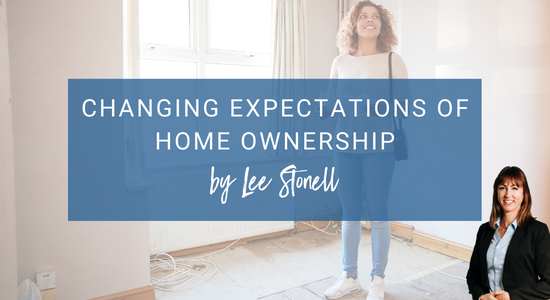One of the things I’ve noticed over my 15 years of working in real estate is how the expectations of people have changed. It is mostly the first home buyer market I am referring to with this observation. When I was growing up in Albany most of the people I knew lived in a 3 bedroom house, regardless of the number of children that were part of the family. Some of my friends grew up in smaller, two bedroom homes and it was common practice for siblings to share bedrooms. If you were fortunate enough to have a second bathroom/ensuite in your home then that was considered pretty flash living in the 1970s/80s.
Many first home buyers I deal with these days expect that their first home includes 4 bedrooms, 2 bathrooms, multiple living areas, an outdoor entertaining area, double garaging, and the list goes on. They also often gravitate towards brand new or near new homes that come with all of the latest bells and whistles. Many of this young cohort of buyers are making their first home purchase a property of the same caliber that their own parents worked all of their lives to be able to afford, or may never be able to afford.
It makes me wonder why there has been such a change in the expectations of the first home buyer market. In my early days in real estate I remember the time when large land subdivisions started to hit the market, mainly around the McKail area, and residential blocks could be purchased for not much more than $50,000 a pop. This coincided with a lot of project home building companies offering attractive deals to people wanting to have a new home constructed. To add to this, a lot of young people in Albany took the up newly created, highly paid FIFO jobs that became available around this time so suddenly a large number of FHB could afford to buy and invest in large, lavish houses with the latest gadgets and gimmicks. I feel this “era” was a turning point where expectations of first home buyers suddenly changed. As developers continued to release more residential lots to the open market many more people, including FHB, were lured by the appeal of owning a shiny new home, as an alternative to buying an older, established dwelling. This was despite the fact that the rather sudden increase in demand for housing in Albany contributed to land values doubling in only a few years, and then doubling again by the time the WA property boom hit Albany the hardest around 2008.
While the appeal of a new home is attractive to many, the shine of a freshly constructed home only lasts for a limited time as trends change and new products become available to fit houses out with. In other words, all new homes eventually become ‘old’, or at least dated compared to the latest and greatest versions that continue to become available in to the future.
My advice to those starting out in the housing market is to start off with a modest purchase of an older home with a cheaper price tag, but in an area that is close to either the CBD or other popular attractions such as the beach or sought-after schools. You would be wise to even consider buying a unit or duplex half, as they are often more affordable because they come with less land. Buying the worst house in the best street is a classic way to make the most of your investment as more of the purchase price is tied up in the value of the land (which will appreciate over time) and less in the value of the dwelling (which will only depreciate over time, unless you keep spending money on renovating it regularly).
After you have taken the plunge and bought your first property, you should then work hard at paying down the mortgage so in turn, you build up equity in your property. One of the good things about not having a massive mortgage with a first home purchase is that you may still be able to afford to go on holidays and enjoy a few luxuries because the financial pressure of your mortgage is not sucking your finances dry, and if your situation unexpectedly changes, you don’t have the huge financial burden of a large amount of debt weighing over your head.
Once you are more financially secure you can then look to upgrade. People who make money in real estate generally do so not by selling their properties, but rather by holding on to them over time. Treat your first home purchase like a stepping stone, and when you are ready to move on, keep it as an investment property where the future tenants help pay off the remainder of the mortgage, and use the equity you have built up over time to help secure a larger or more modern property when it’s feasible.
Building a property portfolio is not something that you can expect to achieve quickly. However, if you can resist the temptation of buying or building a large, new home with all of the trimmings first up, and instead start off with a small first home purchase as early as you can afford to get in to the market, you will be on your way to setting yourself up for financial stability in the future.
The friendly team at Merrifield Real Estate are always happy to chat to FHB and help guide them through the often daunting process of buying their very first property.


